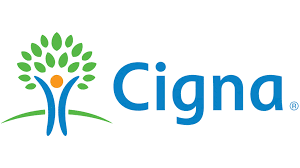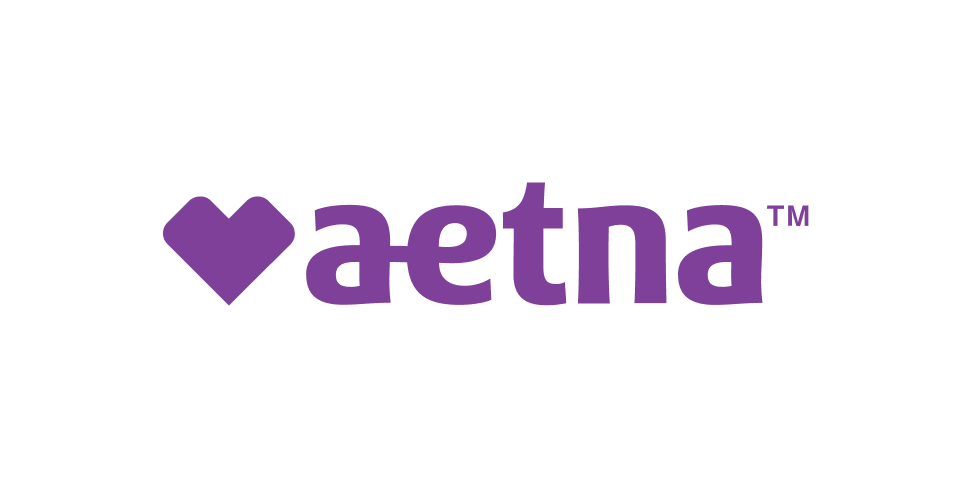Understanding how a health insurance plan covers detox in Nashville, TN is crucial for anyone seeking addiction treatment. Not all insurance plans provide the same level of coverage, and out-of-pocket costs can vary greatly depending on the type of plan you have. If you or a loved one is struggling with addiction, you might wonder “Will My Health Insurance Plan Cover Detox?”
In this article, we’ll explore the major forms of health insurance and explain which ones mandate substance abuse coverage. By the end, you’ll also know what to do if your insurance doesn’t cover detox or if you’re uninsured. At TN Detox Center, we offer addiction treatment in Nashville with the goal of helping our clients get the care they need without stressing about finances.
What This Article Will Teach You
Mental health & substance abuse coverage can be confusing, especially when it comes to detox and addiction treatment. By the time you finish this article, you’ll understand:
- The major types of health insurance available in the U.S.
- Which categories of insurance are required to cover substance abuse treatment
- What options exist if your health insurance plan covers Detox in Nashville, TN or if you’re uninsured
Understanding how a health insurance plan covers detox in Nashville, TN is crucial for those seeking addiction treatment. Not all plans provide the same coverage, and costs vary widely depending on the type of insurance. This article will guide you through the most common forms of health insurance, the categories that cover substance abuse treatment, and what options are available if your insurance doesn’t cover detox or if you’re uninsured.
Understanding HMO vs PPO Insurance for Detox
No matter what type of insurance plan you have, whether it is through your employer or a government program, there are generally two main types of health insurance plans: HMO (Health Maintenance Organization) and PPO (Preferred Provider Organization).
- HMO plans typically have lower out-of-pocket costs and require patients to choose a primary care physician who will oversee their healthcare. This means that to receive coverage for any medical treatment, including addiction treatment, the patient must first obtain a referral from their primary care physician.
- PPO plans offer more flexibility in choosing healthcare providers but usually come with higher out-of-pocket costs. Patients with PPO plans do not need referrals and can visit specialists without obtaining prior approval.
If you’re wondering, “Will my health insurance plan cover detox,” the answer is most likely yes. But, this might also heavily rely on whether you have an HMO or PPO plan.
Major Types of Health Insurance
In the U.S., the most popular forms of health insurance include employer-provided plans, Obamacare (Affordable Care Act), Medicare, Medicaid, and TRICARE. While other forms like short-term plans exist, we’ll focus on these key categories, as they are most relevant to addiction treatment coverage. If your health insurance plan covers detox in Nashville, TN, you’ll want to ensure you understand its limits and benefits. For those without insurance, payment plans and other options may still be available.
Employer Health Insurance
Employer-provided health insurance comes in different types. Common commercial employer-offered insurance companies that might provide mental health & substance abuse coverage include:
- Blue Cross Blue Shield
- Aetna
- Anthem
- Cigna
- Humana
- United Healthcare
- UMR
- Optum
- Multiplan
These insurance companies typically offer a range of plans that cover different levels of substance abuse treatment, including inpatient and outpatient services. It’s important to carefully review the details of each plan to determine the extent of coverage for addiction treatment.
How a Health Insurance Plan Covers Detox
If you’re wondering How a Health Insurance Plan Covers Detox for businesses, small companies (those with 50 or fewer workers) typically offer small group health insurance, which must comply with the Affordable Care Act (ACA). This means small group plans usually cover substance use treatment. Your coverage, however, depends on the plan’s network type (like an HMO or PPO). For instance, PPO plans may offer the flexibility to use out-of-network detox centers, which can be helpful if the in-network options don’t suit your needs.
Large companies and self-insured businesses follow ERISA regulations, which are less strict than ACA plans. While these large employer plans often offer broad benefits, including substance abuse treatment, ERISA guidelines allow more flexibility. If substance use treatment is included, the plan must comply with the Mental Health Parity and Addiction Equity Act (MHPAEA). This law ensures that coverage for substance abuse treatment is similar to other medical benefits. In other words, cost-sharing requirements for addiction treatment, such as deductibles or copayments, can’t be higher than those applied to medical care.
Obamacare (ACA Plans)
Obamacare refers to health insurance plans that comply with the Affordable Care Act (ACA). These plans offer 10 Essential Health Benefits, including coverage for substance use disorders. However, some ACA plans are narrow network HMOs, meaning your choice of detox facilities may be limited. If you have a PPO plan under Obamacare, you’ll have more flexibility to use out-of-network detox centers.
Medicare
Medicare primarily covers individuals aged 65 and older, but it also includes people with disabilities. Medicare benefits do cover detox, including drug and alcohol detox, when deemed medically necessary. Medicare Advantage plans (Part C) often expand these benefits, allowing you to explore supplemental options like additional mental health or substance use coverage. However, some detox centers may not accept Medicare due to lower reimbursement rates, so it’s important to confirm with your chosen facility.
Medicaid
Medicaid is a government-sponsored program for low-income individuals, children, and other qualifying groups. It generally covers substance abuse treatment, including detox. However, challenges may arise if you need to determine whether detox is medically necessary or if the detox facility accepts Medicaid reimbursement, as Medicaid payment rates can be lower than other forms of insurance.
TRICARE
TRICARE provides health insurance for U.S. military personnel and their families. Like Medicare and Medicaid, TRICARE covers detox for substance use disorders. However, it’s essential to confirm which facilities accept TRICARE for detox in Nashville, TN, to ensure you can access the care you need.
TRICARE vs. VA Insurance
There’s a big difference between TRICARE and VA insurance. TRICARE is open to current members of the military and their families, whereas VA insurance is designed specifically for veterans. If you are seeking treatment for a substance use disorder in Nashville, TN, it’s essential to understand which type of insurance you have and what benefits it provides.
Your local VA medical center might have a substance abuse program with detox. But, if you want to explore other options, you might be able to get a referral for care in the community, which includes treatment at in-network facilities or with community providers.
What to Do When You Lack Coverage for Detox
Even if your health insurance plan covers detox in Nashville, TN, it doesn’t always guarantee your preferred detox center will accept your insurance. In these cases, contact your insurer for alternative options. If you’re uninsured, many detox facilities offer payment plans or sliding scale fees.
Nonprofit organizations can also help connect people struggling with addiction to affordable treatment options. By knowing how your insurance works or exploring financial alternatives, you can ensure that cost won’t stand in the way of getting the treatment you or your loved one needs.
Explore Coverage Options Today at TN Detox Center
TN Detox Center is dedicated to providing affordable, effective treatment options for those struggling with addiction. Our team of trained professionals will work with you and your insurance provider to determine the best coverage options available. We understand that navigating insurance can be overwhelming, but we are here to guide you through the process and make sure you get the care you deserve. Call us today at (629) 262-5675 to speak to our caring consultants today.
Frequently Asked Questions
Does Health Insurance Cover Drug Detox Services in Tennessee?
- Yes, health insurance can cover drug detox services in Tennessee. However, coverage may vary depending on your specific insurance plan. It is important to check with your insurance provider to determine the extent of your coverage for addiction treatment.
Does Health Insurance Cover Medical Detox Programs in Tennessee?
- Yes, health insurance can cover medical detox programs in Tennessee. Medical detox is considered a necessary and essential part of addiction treatment, so it is often covered by health insurance plans.
Are There Free Drug Detox Programs in Tennessee?
- There are some free drug detox programs available in Tennessee through government-funded or non-profit organizations. These programs may have limited availability and may not offer the same level of care as private facilities.
Does Commercial Health Insurance Cover Dual Diagnosis and Detox Services in Tennessee?
- Yes, most commercial health insurance plans in Tennessee cover dual diagnosis and detox services. Employer or individually purchased plans may vary in coverage and cost. Some plans may require pre-authorization or have limitations on the number of days covered for detox services.
Does Health Insurance Cover Alcohol Detox Programs in Tennessee?
- Yes, most health insurance plans in Tennessee cover alcohol detox programs. Alcohol detox might be medically necessary since withdrawal symptoms can be deadly.
Check Your Insurance Coverage






Your insurance may pay for all of your addiction treatment. Call for a confidential conversation with a treatment provider about your financial options.

| Medically Reviewed By: Board-Certified Psychiatrist and Addictionologist |

| Clinically Reviewed By: Board Certified Clinical Social Worker |
Did you know that your insurance plan may cover medical detox?

Get Family Support Now
Supporting Families Through Recovery
We understand addiction affects the whole family. Our comprehensive family program helps rebuild trust and restore relationships.
Weekly Family Therapy Sessions
Educational Workshops
Support Groups
Communication Skills Training
Get Family Support Now


